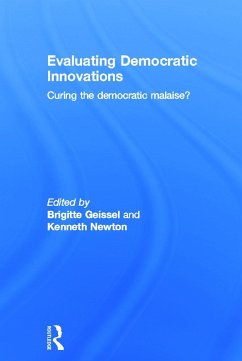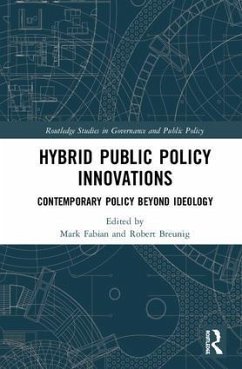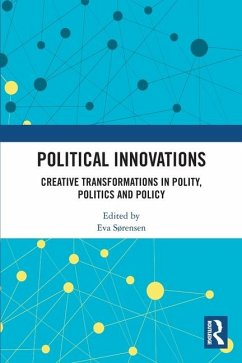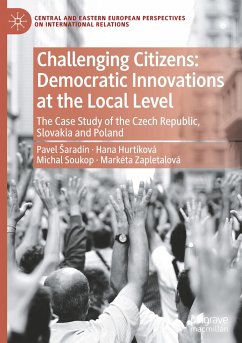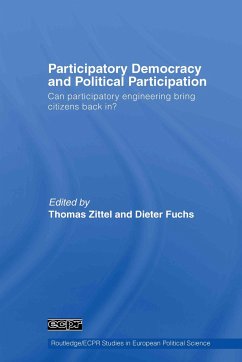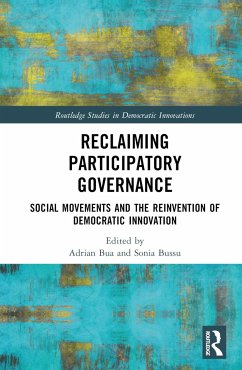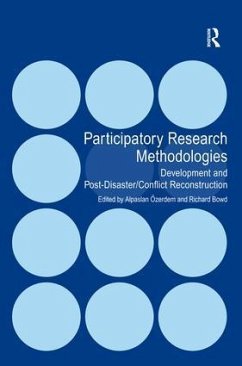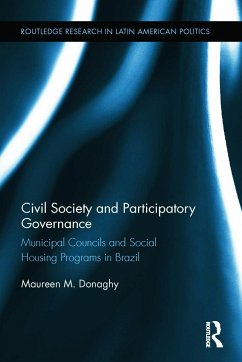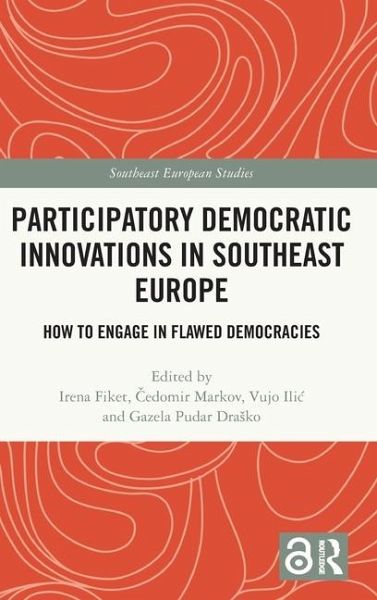
Participatory Democratic Innovations in Southeast Europe
How to Engage in Flawed Democracies
Herausgegeben: Fiket, Irena; Markov, Cedomir; Ilic, Vujo; Drasko, Gazela Pudar
Versandkostenfrei!
Versandfertig in 1-2 Wochen
171,99 €
inkl. MwSt.
Weitere Ausgaben:

PAYBACK Punkte
86 °P sammeln!
This volume strengthens the dialogue between conceptual perspectives, approaches and fields on deliberative and participatory forms of democratic innovation and offers novel insights, focusing on the Southeast European space. Traditional forms of participation seem insufficient in satisfying the growing complexity of the democratic processes, especially in the context of autocratizing societies. It is crucial to examine the possibilities of democratic innovation in political research and practice, trying to establish a connection between the possibilities and limits of representative democracy...
This volume strengthens the dialogue between conceptual perspectives, approaches and fields on deliberative and participatory forms of democratic innovation and offers novel insights, focusing on the Southeast European space. Traditional forms of participation seem insufficient in satisfying the growing complexity of the democratic processes, especially in the context of autocratizing societies. It is crucial to examine the possibilities of democratic innovation in political research and practice, trying to establish a connection between the possibilities and limits of representative democracy and social movements as possible carriers of the process of democratic innovation. This book offers novel insights into practices of civil society and social movements and their pathways carved to initiate a deep change in political thinking and practice and compelling insights for scholars and students of Southeast Europe, social movements and democracy.





